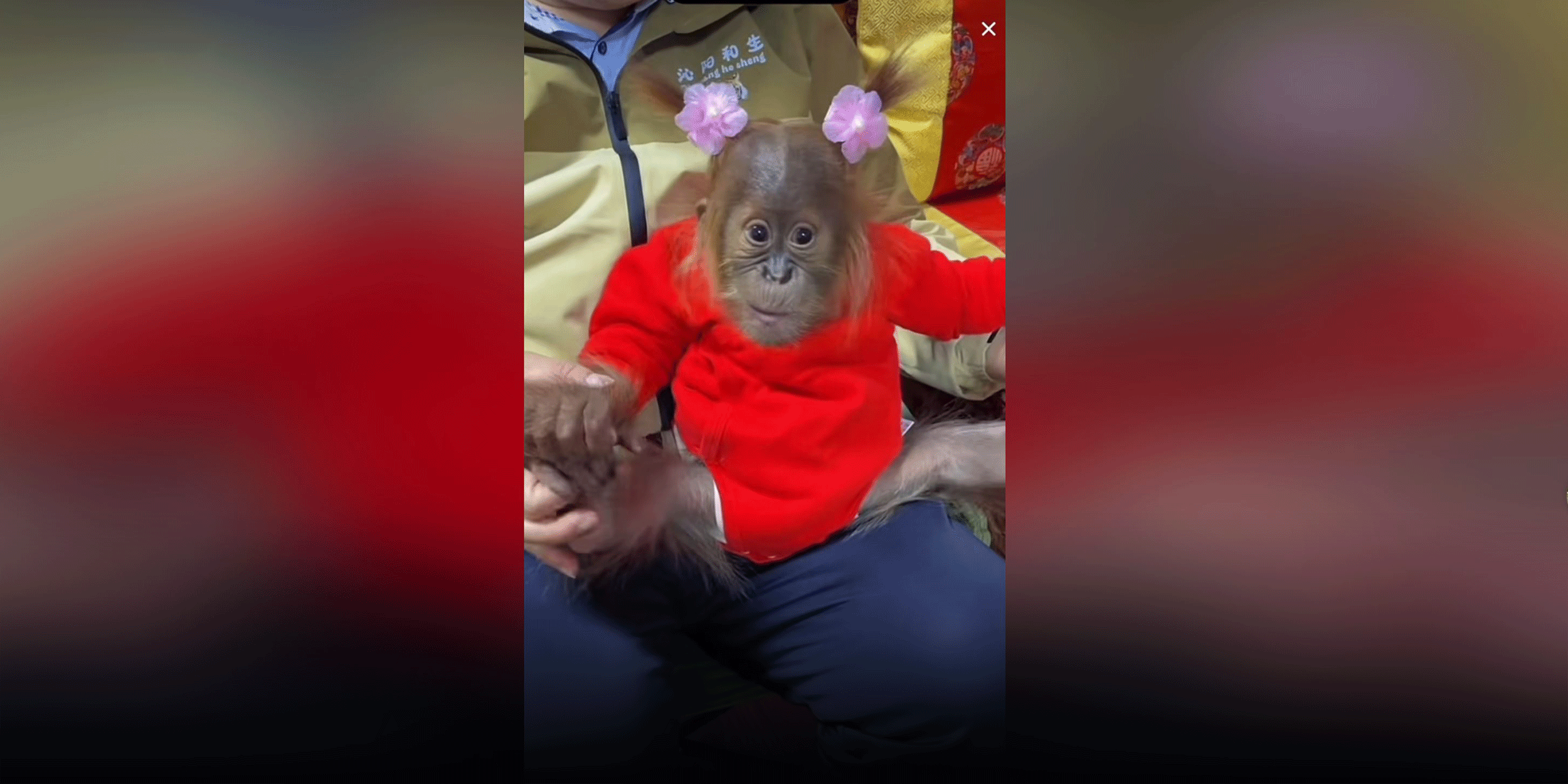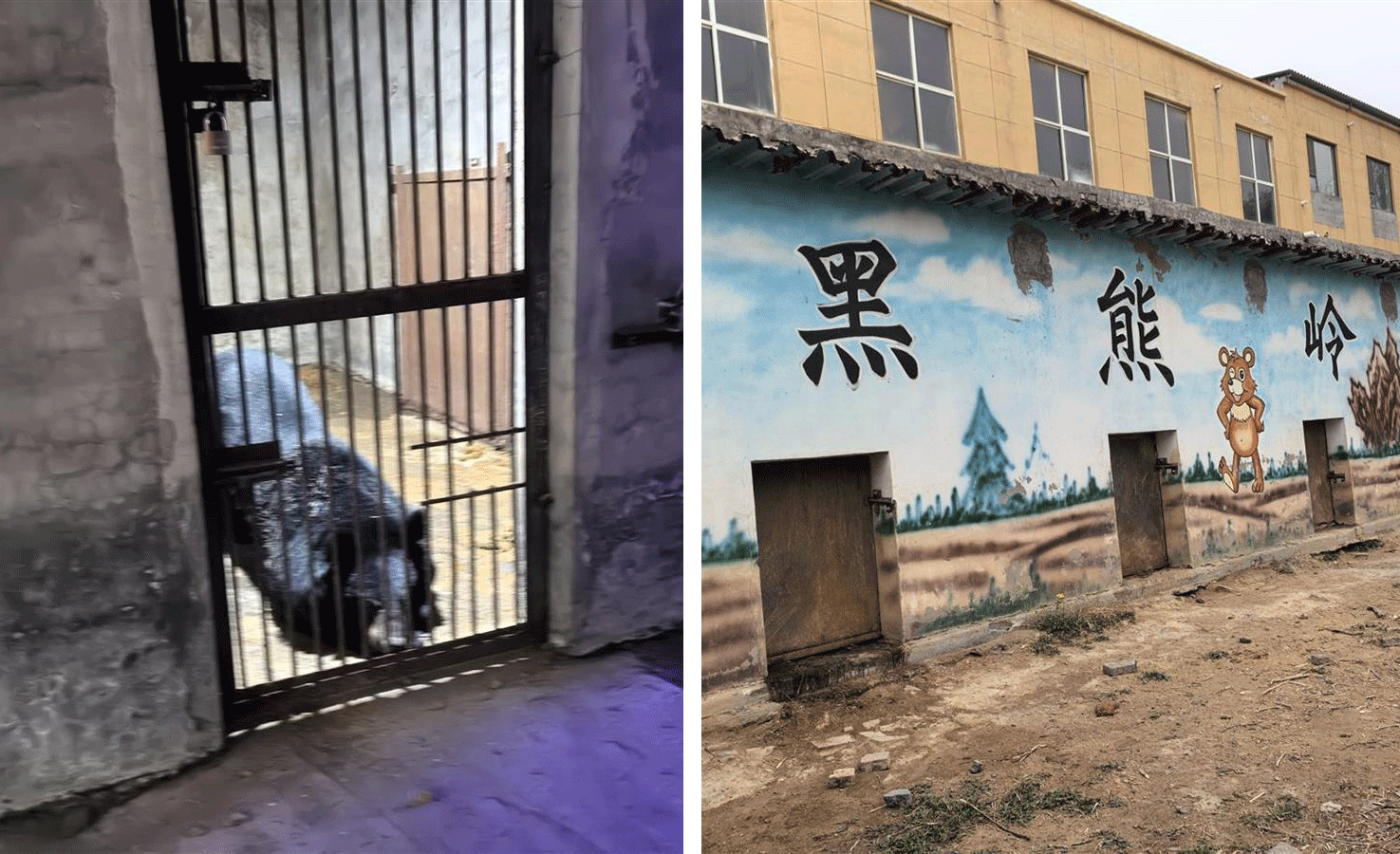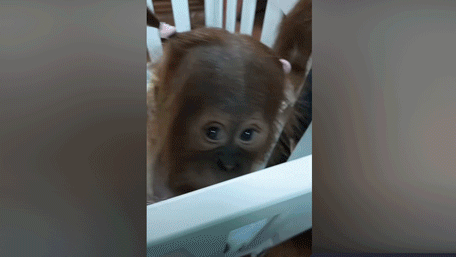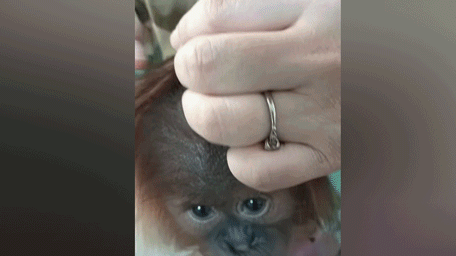
Unpaid Staff, a Runaway Bear, and a Baby Orangutan in Sunglasses
A black bear on the loose in northern China’s Hebei province and a young orangutan in braids and human clothes in an animal park in the central Henan province have renewed public concern in recent weeks about animal welfare conditions in China.
On social media, hashtags related to the incidents drew millions of views, with many expressing concern over how animals are managed, displayed, and commercialized in China’s tourism-driven animal parks. While one exposed signs of systemic neglect in privately run parks, including unpaid staff and deteriorating enclosures, the other raised questions about anthropomorphism and captive care.
On April 2, a black bear escaped from its enclosure at the Foshan Wildlife Park in Hebei’s Handan City, and made its way to a nearby apiary, where it tore into several hives, and damaged equipment.
With surveillance equipment dysfunctional, officials believe the bear escaped via a ventilation shaft, climbed over a fence near the staff quarters, and slipped out through a gap in the park’s western electric gate, according to state broadcaster CCTV.
With help from local villagers, a government-led rescue team found the animal the next day, over a kilometer from the park. The park has since closed, with no reopening date announced.

A 2006 national guideline required zoos and parks housing predators such as lions, tigers, and bears to maintain electric fencing and surveillance to prevent escapes and injuries.
Following the incident, the park sealed the ventilation shaft, added eight surveillance cameras, and said more safety upgrades, including electric fencing, are underway.
Even before the escape, the park was under strain, according to domestic media reports, struggling with poor management and financial losses. Visitors had complained about far fewer animals and deteriorating enclosures.
Park staff told domestic media that breeders earned just 3,000 yuan ($400) per month, and haven’t been paid in two months. “Many are considering quitting,” one worker was quoted as saying.
At the Hesheng Forest Animal Park — established in 2021 — in Henan’s Qinyang City, an 8-month-old female orangutan named Qixi is fueling a different concern.
Videos of Qixi — dressed in baby clothes, styled with twin braids, and sometimes wearing sunglasses — are regularly featured on the park’s official account on Douyin, China’s version of TikTok.


Along with another self-proclaimed account named “orangutan dad,” the videos have attracted over 30,000 followers, with viewers praising Qixi as cute and clever. But animal welfare experts warn of deeper concerns, including the risks of raising animals in isolation and zoonotic disease.
Sun Quanhui, a scientist with World Animal Protection, told domestic media that orangutans naturally have thick body hair, and dressing them in human clothing can interfere with their ability to regulate body temperature and limit natural movement.
“Frequent dressing up, hair braiding, and arranging close contact with visitors may not only harm the animal but also send a misleading message to the public by portraying wildlife as entertainment,” he said.
In response, the park’s staff defended the practice, saying Qixi was hand-raised after being bred at the park and is still too young to walk. Her clothes, they said, help keep her warm; her hair is braided to keep it out of her eyes — and to make her look “cute.”
On her close contact with humans, the staff explained, “Qixi is still very young… To support breeding efforts, hand-rearing is necessary at this stage.”
Editor: Apurva.
(Header image: A screenshot shows Qixi the orangutan wearing clothes. From Douyin)










